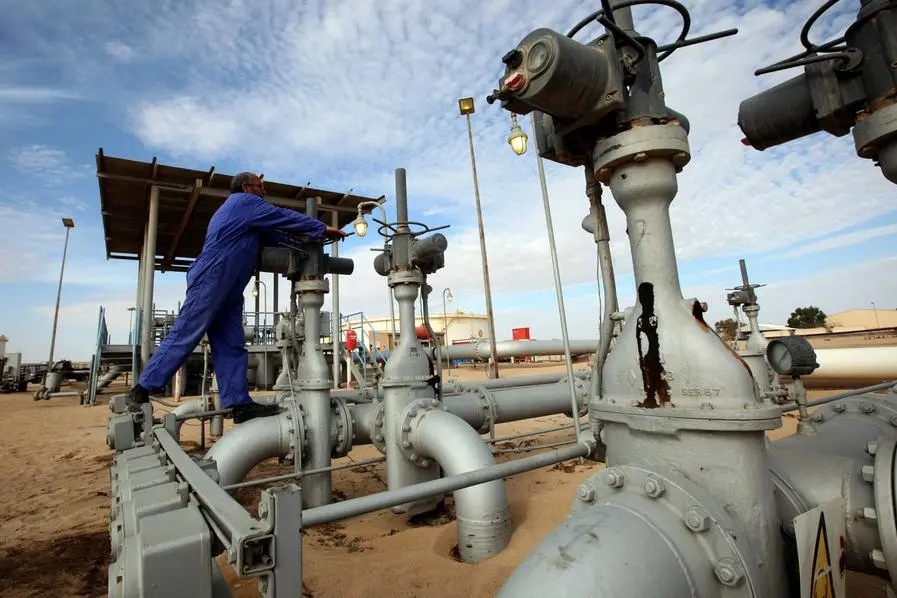PHOTO
Libya's oilfield closures escalated on Wednesday as the Sarir field almost completely halted output, two field engineers told Reuters, as a result of a political dispute over control of the central bank and oil revenue.
Authorities in the east, home to most of Libya's oilfields, said on Monday that all production and exports would be halted, though some ports under eastern control operated normally on Wednesday.
Sarir was producing about 209,000 barrels per day (bpd) before output was reduced, the engineers said.
Force majeure had already been announced earlier this month on exports at the 300,000 bpd Sharara oilfield and this week Reuters has reported disruptions at El Feel, Amal, Nafoora and Abu Attifel.
Rapidan Energy Group estimated production disruptions of between 900,000 and 1 million bpd for several weeks.
Analysts, however, said even that might not drive up oil prices.
Benchmark Brent oil prices were down about 1.6% to $78.28 per barrel as of 1440 GMT.
Despite the scale and length, "I'm not sure it's enough to break through this over-powering macro bearish sentiment that continues to shape the market," Rapidan's Geopolitical Risk Service Director Fernando Ferreira told Reuters.
In July, Libya, a member of the Organization of the Petroleum Exporting Countries, was producing about 1.18 million barrels of oil per day.
Ports in the country's hydrocarbon-rich Oil Crescent operated normally on Wednesday and had not received orders to halt exports, five engineers told Reuters.
Four vessels were at ports in the central region to load 600,000 barrels each, they said - two at Es Sidra, one at Brega and one at Zueitina.
The efforts to shut off Libya's main source of revenue are in response to the Tripoli-based Presidency Council's sacking Central Bank of Libya (CBL) chief Sadiq al-Kabir earlier this month, prompting rival armed factions to mobilise.
Prime Minister Abdulhamid al-Dbeibah, installed through a U.N.-backed process in 2021 and head of the Tripoli-based Government of National Unity, repeated on Wednesday previous comment that oilfields should not be allowed to be shut "under flimsy pretexts" and said it was necessary to hold accountable those responsible for shutting oilfields.
On Tuesday, U.S. Africa Command General Michael Langley and Chargé d'Affaires Jeremy Berndt met Khalifa Haftar, the head of a force called the Libyan National Army that controls the country's east and south.
"The United States urges all Libyan stakeholders to engage constructively in dialogue," with support from the United Nations Support Mission in Libya and the international community, the U.S. Embassy in Libya said on social media platform X.
(Reporting by Ayman Al-Warfali; writing by Yousef Saba; editing by Jason Neely and Barbara Lewis)





















